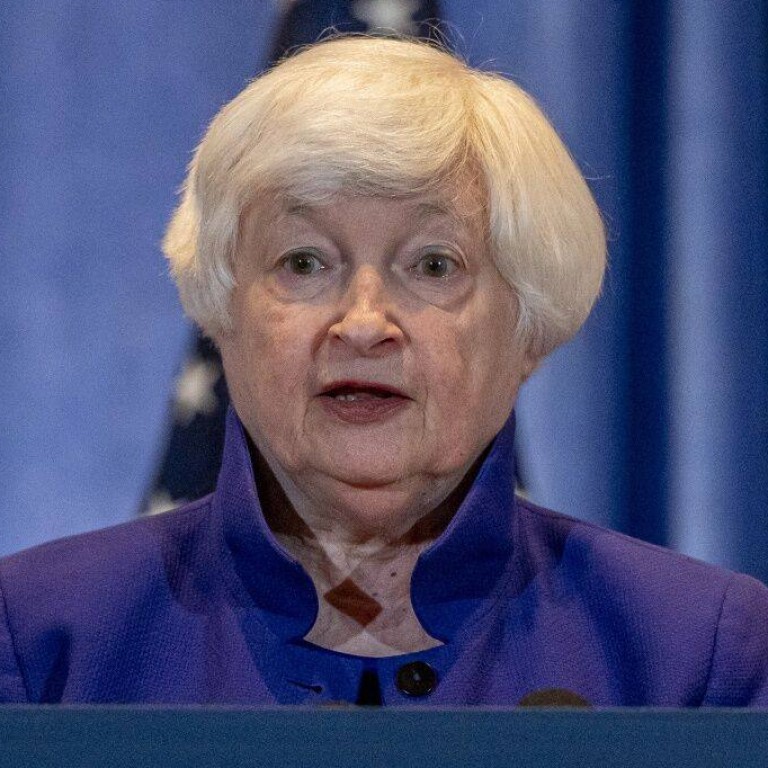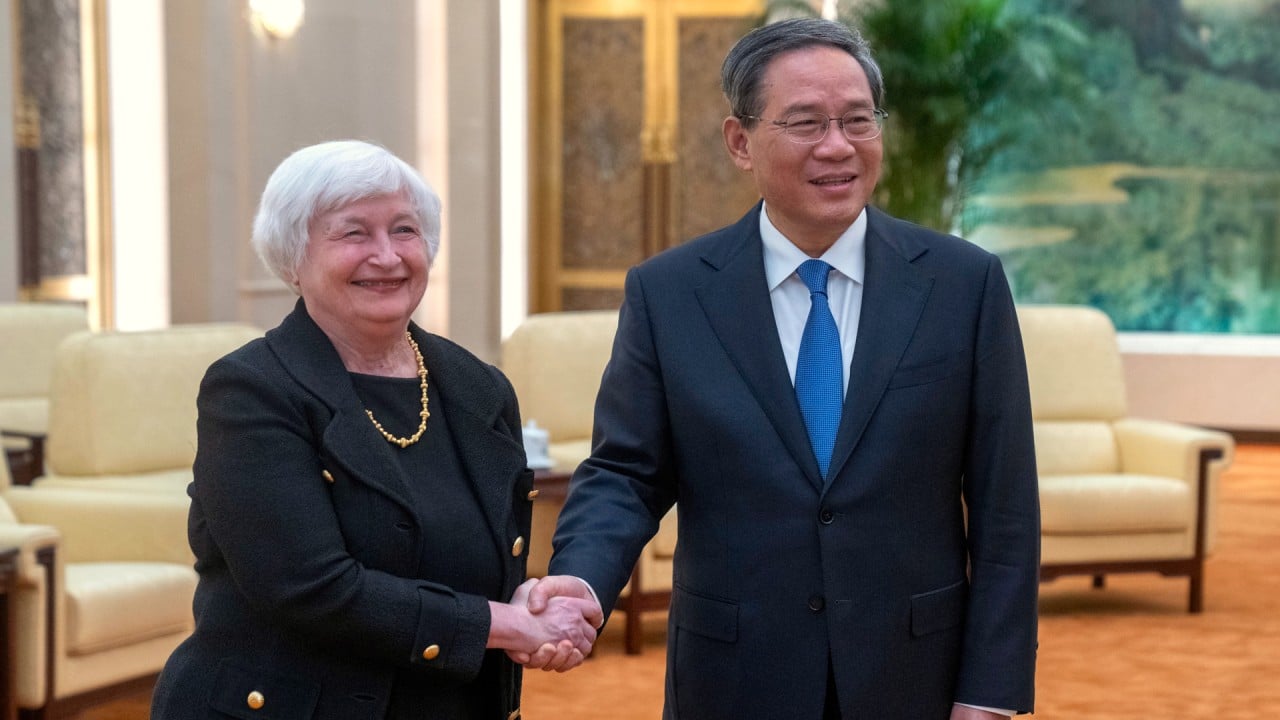
US, China agree to cooperate on climate change, global debt relief
- Decision follows two days of talks between Treasury Secretary Janet Yellen and Vice-Premier He Lifeng ahead of much-awaited Biden-Xi summit
- US does not intend to decouple its economy from China’s, Yellen says, while highlighting need to maintain ‘resilient lines of communication’
“We agreed that in-depth and frank discussions matter, particularly when we disagree,” Yellen said after her talks with Li ended on Friday.
“And I emphasised that the current uncertain global landscape makes it particularly crucial that we maintain resilient lines of communication going forward.”
At a separate press conference with Chinese state media in San Francisco the same day, China’s finance vice-minister Liao Min said the US Treasury Department and China’s Ministry of Finance would set up a working group headed by a vice-ministerial official to launch regular direct bilateral communication on economic and financial issues.
The talks between He and Yellen over Thursday and Friday lasted 10 hours in all, he said.
Both sides agreed not to aim for economic decoupling and to enhance cooperation on global debt relief and climate change, Liao said. They also pledged to continue to work on strengthening the international financial architecture and promote increases in International Monetary Fund quotas.
Brazil’s president tells UN that Western groups are failing developing nations
Country quotas assigned by the IMF are its main source of financing. These are based on the member states’ relative importance on the global stage and also determine voting power within the organisation. China and developing countries like India and Brazil have been calling for a bigger voting power at the IMF.
The body earlier this week passed a reform proposal to increase each member’s quota by 50 per cent to boost lending resources, but did not change the shareholding ratio, thus retaining the voting power status quo.
The US is by far the IMF’s largest shareholder with 16.5 per cent of voting rights.
Yellen also said she had raised concerns with He about the breadth of Chinese state-led economic practices and their impact on the global community, but added that Washington did not intend to decouple its economy from China’s.

“This would be damaging to both the US and China and destabilising for the world,” she said. “But a healthy economic relationship requires American workers and firms to be treated fairly.”
Liao said He raised concerns from the Chinese side, including over US restrictions on two-way investment, sanctions on Chinese enterprises, and export controls and extra tariffs imposed on goods from China.
The vice-premier also demanded earnest action from the US side to address China’s concerns, Liao said.
Yellen declined to say whether she considered China’s economy “un-investible” and defended Washington’s use of economic tools – including sanctions and export restrictions – to safeguard national security.
Visiting Beijing in August, US Commerce Secretary Gina Raimondo had warned that US firms could stop investing in China if it did not address worsening conditions, including raids on foreign firms, unexplained fines and unpredictable official behaviour.
Stable China, US economic ties is ‘what the world expects’, Gina Raimondo says
Yellen also said she warned China against supporting the Russian military in its war against Ukraine. While there is no evidence that the government is involved, she said, Chinese companies and financial institutions have been sanctioned.
The two finance chiefs spoke at length about the Chinese economy, which is struggling, though Yellen said she did not have a definitive view on whether Beijing’s countermeasures were sufficient.
China is the second-largest holder of US government debt after Japan, and Chinese investors offloaded US$21.2 billion of US assets in August, the most in four years, according to Treasury Department data.
He reportedly told Yellen that the recent sell-off in US Treasury debt was part of an effort to shore up the yuan, which has weakened.
Traditionally, financial talks between the two sides have been less controversial than those involving defence, China’s large current account surpluses and trade barriers.
But as suspicion has grown and national security issues have increasingly come to define the relationship, macro financial issues have grown more contentious.
The US has argued – as did Yellen on Friday – that its tech export bans are clearly defined, measured, well communicated and aimed at technologies that would strengthen China’s rapidly expanding military.
In August, Biden issued an executive order barring some new US investments in semiconductors, microelectronics, quantum computing, artificial intelligence and other key Chinese tech industries.
US chip export controls expose China’s weak link in the semiconductor supply chain
This was followed in October by additional measures aimed at tightening some export controls on high-end chips announced last year but easing some others after negotiation with the powerful US semiconductor industry.
Beijing has countered that the US restrictions are punitive, vindictive and designed more to hold back China than to address genuine defence concerns.
But it has also launched its own salvoes, announcing export restrictions on gallium and germanium, minerals critical for the transition to sustainable energy.
“I don’t see the contradiction here,” Chinese foreign ministry spokesman Wang Wenbin said soon after China’s mineral export limits were announced.
“We oppose the overstretch of the national security concept and abuse of export control by a handful of countries and bullying practices of going all out to suppress and contain specific countries,” Wang said, adding that the export controls were “completely legitimate and justified”.
Yellen underscored the need to continue communicating and moving ahead.
“There are many remaining areas of disagreement between our countries. And we know that there is an important difference between words and actions,” she said.
“But the United States will live up to the understandings that we reached, and we expect our counterparts to do the same.”
Additional reporting by He Huifeng


